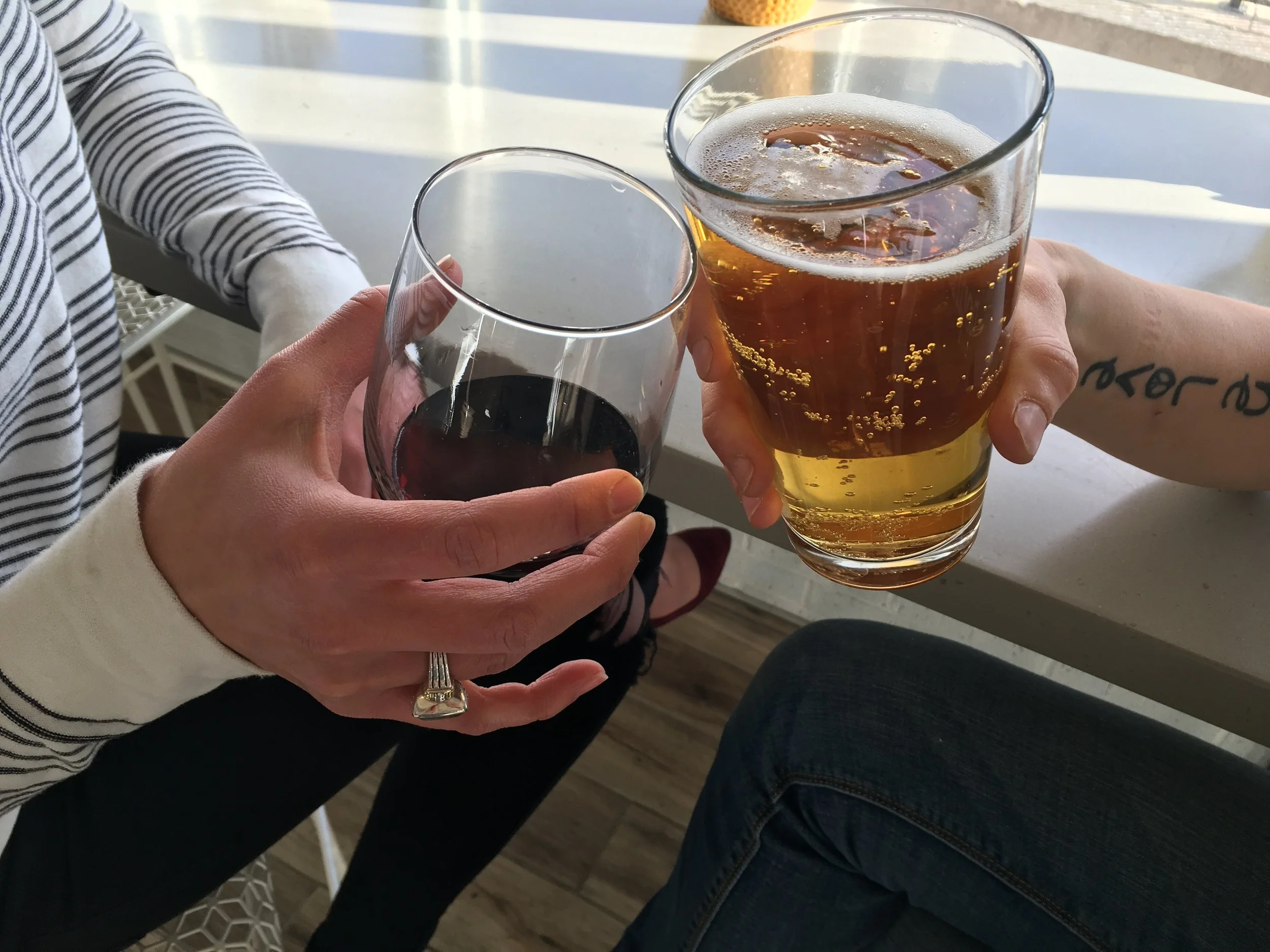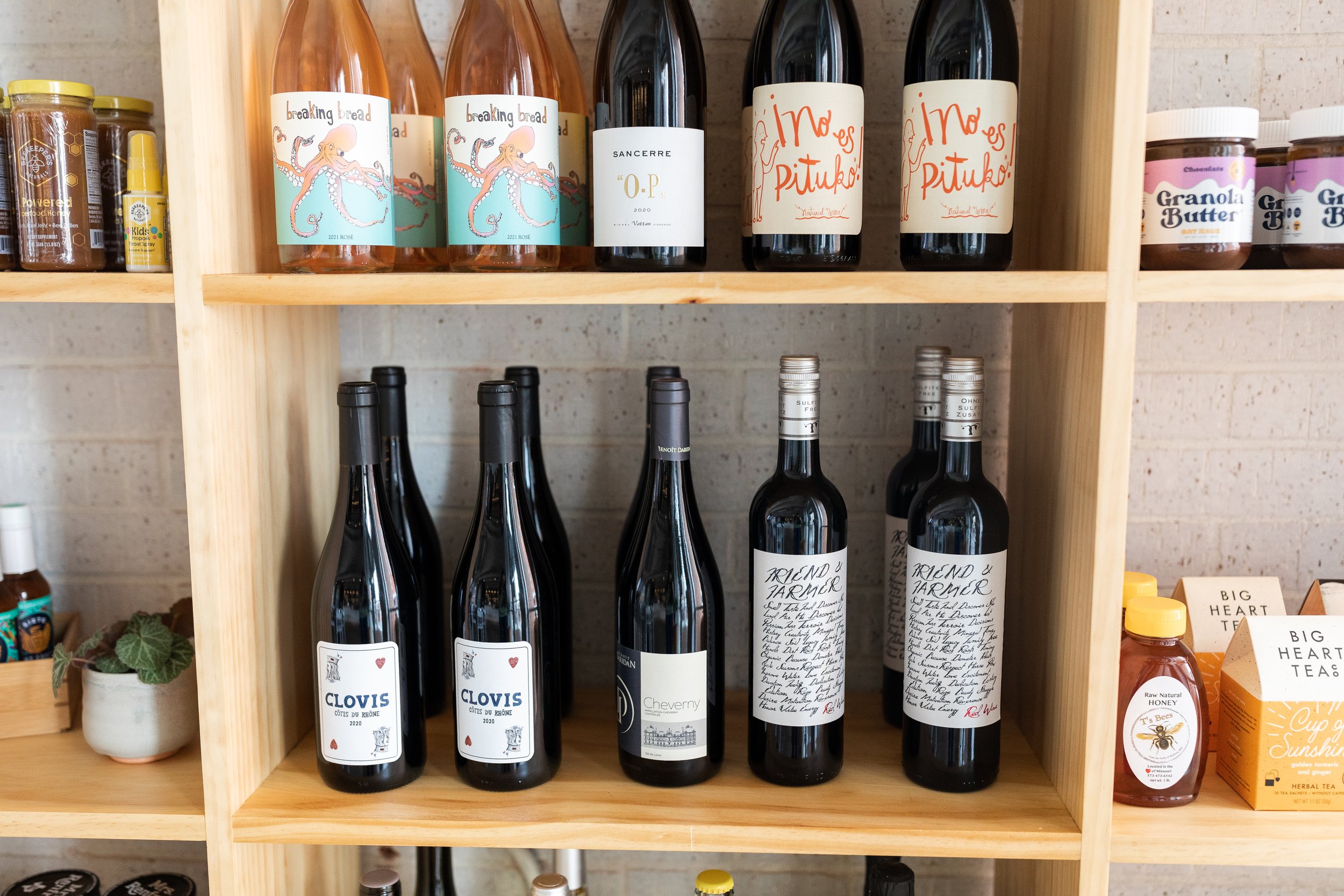Kimber and I love to nourish our bodies with healthy, nutrient dense food, meditate and care for our bodies with regular yoga practice. But guess what else we love?...a drink...or two, (ok maybe 4). When we started Nourish we weren't sure if we'd serve alcohol, mostly because of space issues and the questions of did it fit within our mission? But we both live very healthy lifestyles and still love a good glass of wine and/or beer. #balance. We have ridiculously high standards with the food we serve and we wanted to be on the forefront of what is happening with wine and beer as well. This is where biodynamic, natural, organic wines and gluten free beer come in. I am currently seeing a Naturopath for hormonal issues and one of the first things she told me was to stop drinking conventional wine. It's a very unregulated industry and conventionally grown grapes contain herbicides, pesticides and other chemicals with varying levels of toxicity. On top of that, over 200 additives are legal in the US during the bottling process. That's why you can feel terrible after drinking a couple glasses of wine depending on what chemicals were added to that specific wine.
We started tasting some organic wines and Kimber and I just weren't that impressed. Kimber grew up near Sonoma, CA (wine country) and I am a wine lover with a wine cellar we empty faster than we fill. So any wine just wouldn't do. We knew there had to be better options so we went down to Top 10 Wines to talk with the owner. He was incredibly helpful and told us about a distributor who imports small batch organic, natural and biodynamic wines that all of the big city sommeliers are quickly adding to their menus. Sign us up! We absolutely loved the wines and quickly had our selections. My cellar will be stocked with these beautiful babies. So what in the world do these terms mean?...let us share:
Natural Wine:
Natural wines are wines made with the least possible use of chemicals, additives and overly technological procedures. That includes chemicals in the field, such as pesticides, as well as things like sulfur or any of the almost 200 allowed additives that are legally permitted in wine. And it includes many technological manipulations of wine. There are a lot of ways one can get to a wine we would consider natural. They include organic and biodynamic grape growing. But grape growing is just that: what is done in the fields. For a wine to really be natural, the same philosophies must continue into the winery up until bottling occurs.
• No synthetic molecules in the vines
• Plowing or other solutions to avoid chemical herbicides.
• Use of indigenous yeast
• Handpicked grapes
• Low to no filtering
• Low to no sulfites
• Winemaking that respects the grapes: no pumping or rough handling
of the grapes, no micro-oxygenation.
• No chaptalization (process of adding sugar to unfermented grape must in order to increase the alcohol content after fermentation)
Organic Wine:
Organic grape growing means that no pesticides or chemicals are used in the vineyard. However, many additives can be added during the bottling process. “Natural” wines take organic wines a step further.
Biodynamic Wine:
Biodynamic grape growing is a type of organic viticulture that uses special preparations of herbal sprays and composts, and time their applications according to the lunar calendar. Biodynamicists look at their land as a complete living ecosystem, as a living being that needs biodiversity in order to be healthy. Biodynamic winemakers often also live and work in a farm, with wheat fields, animals, fruit trees, woods, and vines striving to be self-sufficient. The soil is not seen as the surface for production but rather is considered an organism in its own right, and preparations are used to enhance the micro-life in the soil. The soil is part of the context of lunar and cosmic rhythms.
All of our wines are organic and natural and our Pinot and Cava are also biodynamic.
Omission is Kimber's favorite beer and has been for awhile so there was no question that we'd serve it to our guest! #happywifehappylife. Omission is a craft brewery based out of Portland. Each batch of Omission is "tested by an independent lab using the R5 Competitive ELISA test to ensure that every batch contains gluten levels well below the international gluten-free standard of 20 parts per million (ppm) or less." It's delicious and served in a chilled glass.
We can't wait to see what you all think. Thank you for all of your support and nourishing yourself, your family and your community.
With gratitude,
Kalle + Kimber



